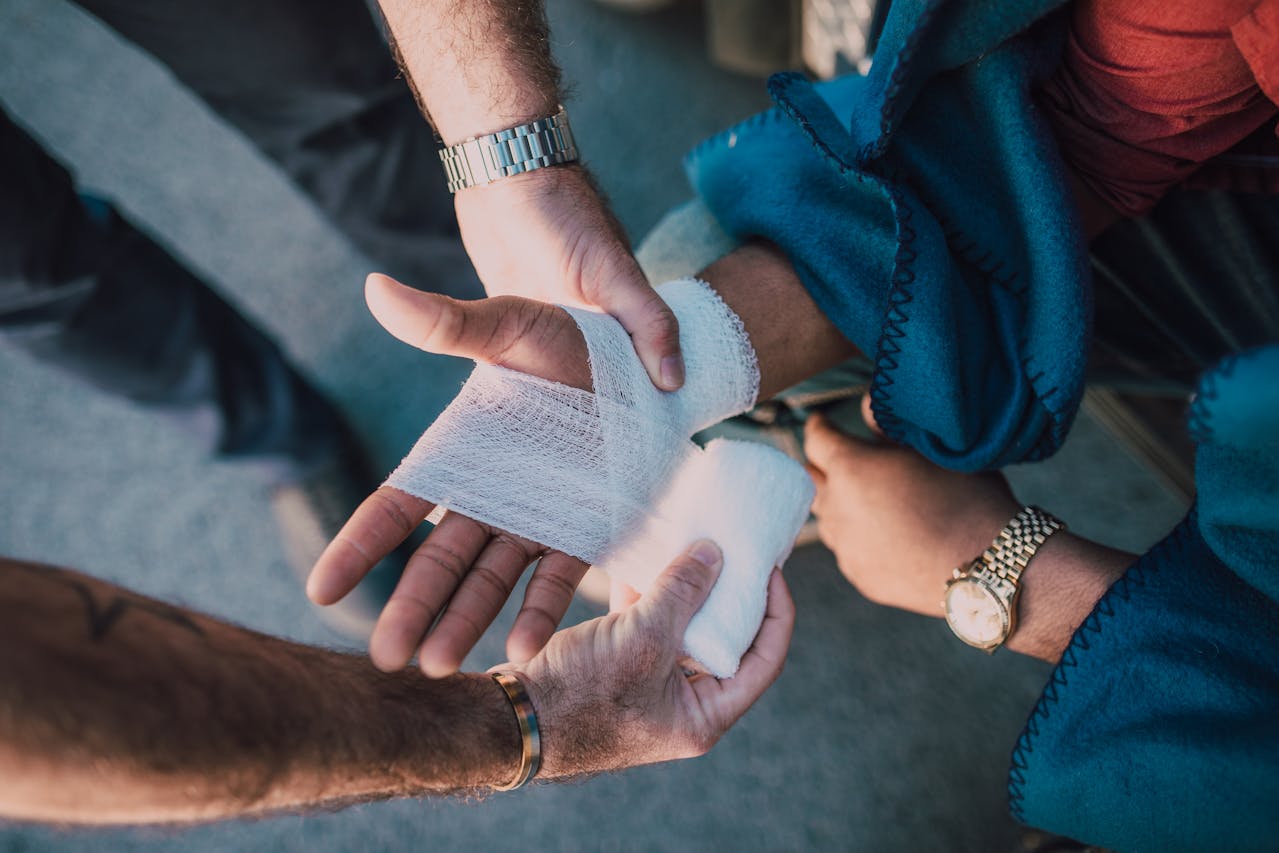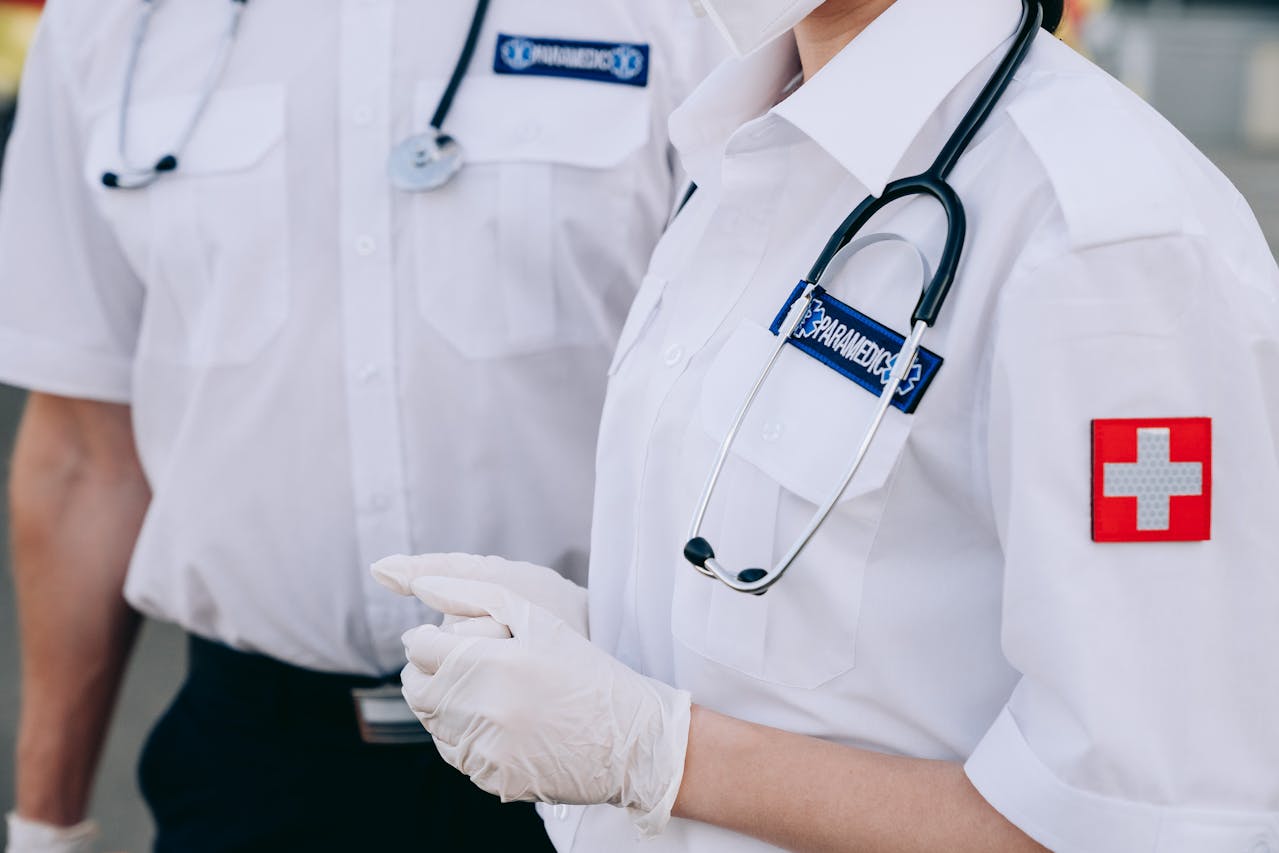Emergency medicine doctors are vital members of the healthcare system, providing immediate care to patients with life-threatening conditions. Working in high-pressure environments, they make quick decisions that can save lives. Managing this level of intensity requires not only medical expertise but also effective stress management techniques. If you are passionate about critical care and fast-paced medical work, becoming an emergency medicine doctor may be the perfect career choice.
What Does an Emergency Medicine Doctor Do?
An emergency medicine doctor specialises in diagnosing and managing acute illnesses and injuries that require immediate attention. They treat a wide range of conditions, including trauma, cardiac emergencies, strokes, respiratory issues, and infections.
In the emergency department, doctors stabilise patients, initiate treatment, and coordinate further care with specialists when necessary. Emergency physicians must be prepared for unpredictable situations and provide high-quality care under time-sensitive conditions.
Pursuing a medical degree in Malaysia provides students with the academic foundation needed to begin the journey toward this dynamic career.
Steps to Becoming an Emergency Medicine Doctor
The pathway to becoming an emergency medicine doctor involves several stages:
Step 1: Complete Pre-University Education
Focus on science subjects such as biology, chemistry, and physics during your secondary education. Strong academic results are essential for gaining admission to undergraduate medical programs.
Step 2: Earn a Medical Degree
Enrol in a recognised medical school in Malaysia or abroad. Medical programs typically take five to six years and cover basic sciences, clinical skills, and hands-on hospital training.
During clinical rotations, students gain exposure to various specialities, including emergency medicine, allowing them to develop essential diagnostic and decision-making skills.
Step 3: Complete a Housemanship or Internship
After graduation, doctors must complete a mandatory housemanship or internship, rotating through different hospital departments. This practical training period ensures they gain broad clinical experience under supervision.
Step 4: Pursue Residency Training in Emergency Medicine
Apply for a residency programme specialising in emergency medicine. Residency typically lasts three to four years and includes advanced clinical training in trauma care, critical care, paediatrics, and toxicology.
Residents learn to perform lifesaving procedures such as intubation, defibrillation, and central line placement under expert supervision.
Step 5: Obtain Certification and Licensure
After completing residency, doctors must pass certification exams administered by the relevant medical board or council in their country. In Malaysia, registration with the Malaysian Medical Council is required to practice independently.
Some emergency medicine doctors choose to pursue further fellowship training in areas such as paediatric emergency medicine, critical care, or toxicology.
Skills and Qualities of a Successful Emergency Medicine Doctor
Emergency medicine doctors must develop a unique set of skills, including:
- Rapid Decision-Making: Making quick, accurate clinical judgments under pressure.
- Broad Medical Knowledge: Treating a wide variety of conditions across all age groups.
- Emotional Resilience: Managing stress and coping with high-stakes, emotionally charged situations.
- Teamwork and Leadership: Collaborating effectively with nurses, paramedics, and specialists during critical incidents.
- Strong Communication Skills: Explaining diagnoses and treatment plans to patients and their families clearly and compassionately.
Continuous learning and adaptability are crucial, as emergency medicine constantly evolves with advances in technology and treatment protocols.

Professionalism and Ethical Responsibilities
Ethics and professionalism are central to emergency medical practice. Emergency medicine doctors must:
- Provide Non-Discriminatory Care: Treat all patients equally, regardless of background or ability to pay.
- Respect Patient Confidentiality: Maintain privacy even in chaotic and crowded emergency settings.
- Obtain Informed Consent: Explain risks and procedures whenever possible, even during emergencies.
- Commit to Ongoing Education: Stay updated with the latest clinical guidelines and research developments.
Training at a reputable medical school in Malaysia helps instil strong ethical principles early in a doctor’s career.
Career Opportunities for Emergency Medicine Doctors
Emergency medicine doctors have diverse career options, including:
- Hospital Emergency Departments: Providing frontline care in public and private hospitals.
- Pre-Hospital Care: Working with ambulance and air rescue services.
- Disaster and Humanitarian Medicine: Responding to natural disasters, mass casualty events, and public health crises.
- Academic Medicine: Teaching medical students and conducting research on emergency care practices.
- Leadership Roles: Managing emergency departments and developing hospital emergency response protocols.
Career prospects in emergency medicine remain strong, offering excellent job stability and the opportunity to make a real difference in patients’ lives.
Final Thoughts About Becoming an Emergency Medicine Doctor
A career in emergency medicine is challenging yet profoundly rewarding. It demands resilience, adaptability, and a commitment to patient care under intense circumstances. If you thrive in fast-paced environments and are passionate about critical care, emergency medicine offers a fulfilling career path.
Starting with a medical degree will prepare you with the essential knowledge, skills, and clinical experience needed to succeed as an emergency medicine doctor.
FAQs About Becoming an Emergency Medicine Doctor
1. How long does it take to become an emergency medicine doctor?
It typically takes around nine to eleven years, including undergraduate medical education, housemanship, and residency training in emergency medicine.
2. What skills are important for emergency medicine doctors?
Important skills include rapid decision-making, broad medical knowledge, emotional resilience, teamwork, and strong communication abilities.
3. Is emergency medicine a stressful career?
Yes, emergency medicine can be stressful due to the fast-paced and unpredictable nature of the work. However, many doctors find it highly rewarding because of the immediate impact they have on patient outcomes.
4. Can emergency medicine doctors specialise further?
Yes, emergency medicine doctors can pursue additional training in areas such as paediatric emergency medicine, critical care, toxicology, or sports medicine.






